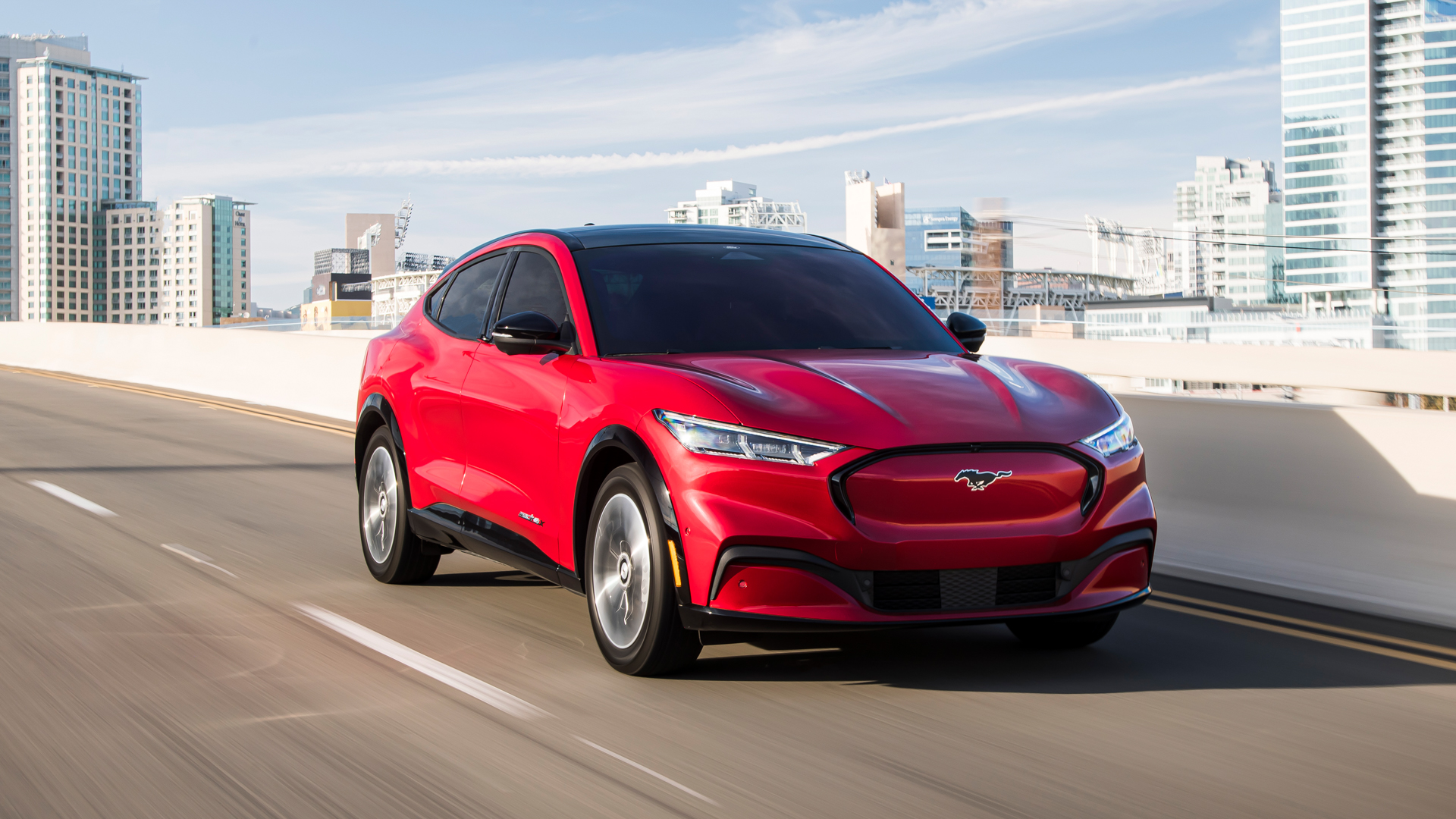

This week, Ford announced its newest battery plant that will produce new cells for its electric vehicles after 2026. Included in that plan is switching its two electric vehicles on sale today—the Mustang Mach-E and Ford F-150 Lightning—to the battery chemistry starting this year on certain trims.
Currently, all of Ford’s electric vehicles use nickel manganese cobalt (NMC) battery cells but, by the end of 2023, Ford will introduce lithium iron phosphate (LFP) cells as a separate battery available to buyers. The Mustang Mach-E will come first, getting an LFP battery pack by the end of 2023 (possibly as a model-year 2024 vehicle), while the F-150 Lightning will get the pack by the end of 2024.
Ford’s battery choice structure will be based on trim level. LFP and NMC batteries have different strengths, so Ford is offering them on the models it says works best with each. For instance, LFP batteries are more durable, can handle more charge cycles, and accept consistent fast charging better than NMC batteries, according to Ford. That’s why standard-range models that are designed for daily commuting and commercial vehicles will come with LFP batteries.

However, longer-range, higher-performance, and heavier-duty vehicles will come with NMC batteries, as they’re better at providing performance and towing power. So cars like the standard-range Mach-E and F-150 Lightning will use LFP, while the extended-range versions and the Mach-E GT will use NMC. Customers won’t be able to choose between the two battery packs on the same trim level, though.
Since those batteries will be offered before the new Michigan plant is built in 2026, Chinese battery giant CATL will provide the LFP cells. Once the Michigan plant is built, though, Ford will license the technology from CATL and manufacture the new cells in the U.S. It’s likely that when federal regulators announce the mineral sourcing rules under the newly revised EV tax credit none of the models will qualify for the full $7,500 credit.
“Because Ford EVs are assembled in North America, many models will continue to be eligible for $7,500 in consumer incentives until further guidance is issued in March. This includes Mustang Mach-E, F-150 Lightning and E-Transit models with an MSRP of $80,000 or lower. When further guidance is issued, we believe certain EV models will meet the requirements for the $3,750 critical minerals credit,” a Ford spokesperson said in a statement.
Got tips? Send ’em to tips@thedrive.com